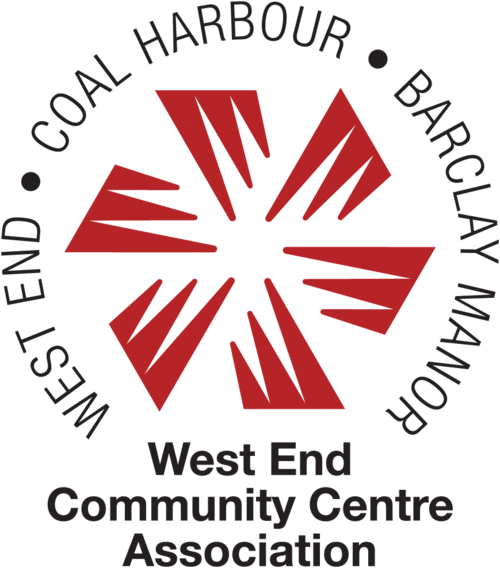A CLOSER LOOK
/A HEATWAVE, A PANDEMIC, AND RISING CRIME
It’s Not Your Imagination — It’s Worse Than Ever
By John Streit
It’s sadly becoming an ugly spring-summer pandemic tradition. Vancouver’s most popular beach and the surrounding neighbourhood morphing into an almost daily authority-free outdoor party zone, the new Granville Entertainment District as some have dubbed it, and all the trouble that comes with that title. There have been fights, stabbings and assaults at English Bay, often fueled by blatantly open drinking and drug use, especially after hours.
Click on graph to enlarge.
New statistics from the Vancouver Police Department show just how much of a problem spot the English Bay area has become. Data crunched by the VPD for TWEJ of monthly service calls by officers shows massive year-over-year increases.
Calls in April up 245 percent, May 155 percent higher, and early numbers in June show an increase of almost 100 percent in the amount of times police are called to the area. 2021 is shaping up to be an especially bad year with police called over 400 times already, compared to 139 in 2019 and 160 for the same six-month period last year.
Officers are seeing large increases in calls related to disturbances, fights, property crimes, suspicious persons, and paramedics needing assistance. Now, this is a beach, don’t forget!
Constable Tania Visintin with Vancouver Police says they’ve been dealing with large crowds, especially on warm nights. “This has created a number of public safety concerns. We expect these challenges to continue throughout the summer and will work with our various partners to maintain order, keep people safe, and hold offenders accountable when they commit crimes.”
Constable Tania Visintin.
On several nights recently, police on the ground, on the water, and in the air were needed to clear large crowds at the 10 p.m. official beach closure time.
Visintin says they’re continuing to work proactively to manage crowds and keep people safe. “This includes deploying extra officers to the waterfront to prevent conflicts, respond to complaints from the public, and investigate crimes if they do occur,” she says. Visintin adds she understands everyone is excited about getting outside, but open liquor and smoking is prohibited on the beaches.
“Our officers have the authority to issue fines for anyone who violates city bylaws or the Liquor Control and Licensing Act. We'd prefer not to do that, so we're asking everyone to be sensible and to follow the rules.”
Pressure on the West End in terms of public safety, personal property and security isn’t just limited to English Bay.
Brad Pacaud is a property manager with Vancity Flats and is experiencing an increase in vandalism, graffiti, and harassment towards himself and his tenants.
“Arson, drug use and using our properties as a bathroom. Our open area parkades are now bathrooms and places to use/sell drugs. On top of this, it is almost a daily occurrence that our cleaners need to pick-up human waste and dirty needles.” Pacaud says that often results in a confrontation. “It has become so normal that I rarely call the police and handle most situations myself. I really feel like it is a waste of time anyway because the VPD’s hands are tied on what they can do. It seems the mayor and city councilors would like to leave these people alone and allow this behavior and crime to continue.”
A recent window smashing at the IGA Marketplace on Burrard is just one of far too many incidents of local crime. (James Oakes Photo)
Pacaud had a particularly scary moment recently. “I came out the back door of one of the buildings I manage to find a guy who had started a fire under a vehicle’s gas tank which was parked directly below a 27-unit wood frame building. I called 911 and wanted to follow the arsonist from a safe distance until the police could arrive, but the 911 operator refused to send help saying my safety was at risk. Unbelievable, to let an arsonist go who can put the lives of dozens of people at risk when I could have inconspicuously followed him at a safe distance until the police arrived,” he says.
Pacaud says not only is this activity frightening, but expensive. He manages some of the most affordable buildings in the West End with many long-term tenants. “Property taxes, insurance and operating costs have increased so drastically, that we are extremely limited on what we can spend on security. We have added extra lighting (motion sensors) signage and fake cameras as well as removing any fences etc. to open all areas so there are no hiding places. We have signage at the back of the buildings asking tenants to not engage with anyone themselves and to call the VPD if they are threatened in any way. I have had several residents give notice and move to other communities due to safety concerns,” he says.
David Scott is president of the West End Community Centre Association and says there’s been a significant increase in incidents in the last two years. The association operates both the Denman and Coal Harbour Community Centres along with Barclay Manor where they’ve had a number of cases of vandalism and break-ins recently. “Last week, we had someone verbally abuse the staff and try to break into a number of the offices during the day. Last month, someone broke into Barclay Manor and stole some equipment, smashed a glass door and damaged items in some of the offices. They then came back to try again, but the alarm went off.”
Scott says people leaving needles and feces behind are a constant problem, despite onsite bathrooms and Sharp containers. “We have young children at the West End Community Centre pre-school. But because of COVID, our three-to-five-year-olds are lined up outside the building waiting to gain entry. Those children are standing there and literally there’s human feces all around them,” he says.
Scott is asking that the Park Board, which has overall responsibility for community centres, install security cameras. “We think it acts as a deterrent. It’s not absolute but I think it would assist in keeping some of the bad actors somewhere else,” he says. A security guard is on site when the community centres act as official city warming or cooling shelters.
Anthony Kupferschmidt, executive director of the West End Seniors’ Network.
Public safety in our neighbourhood is top of mind for Anthony Kupferschmidt, executive director of the West End Seniors’ Network. He’s hearing from some older adults in the West End that they’re experiencing an uptick in disruptive behaviour in the neighbourhood.
“Anxieties are high, and concerns around the importance of physical distancing are heightening reactions to behaviors seen on the street. Some older adults continue to be very cautious when they go out, especially in the evenings. This pandemic has caused some older adults to even limit time outside in broad daylight due to concerns around COVID-19 transmission, but times of the day when fewer people are around don't necessarily feel any safer for other reasons,” he says.
In effort to increase safety, Kupferschmidt recently walked the neighbourhood at night with other volunteers and City of Vancouver to study an important issue for seniors brought up in a WE Choo$e Participatory Budgeting process – lighting, or lack of to be more precise. “In many places, more lighting is needed, or light poles need to be upgraded with additional lights over the sidewalk instead of the street. In other places we identified that the lighting is sufficient, but that tree growth was impacting the effectiveness of that lighting. The trees in the neighbourhood are a treasure, but in some places, they may require some strategic trimming by the Vancouver Park Board to ensure the lighting we have is reaching the sidewalks.” He would also like to see an increase of resources for the West End-Coal Harbour Community Policing Centre.
Another person trying to come up with grassroots solutions to some of the many issues currently affecting the West End at a grassroots level is Dr. Jayne Pivik. The community psychologist first came to Vancouver to do a post-doctoral fellowship at the University of British Columbia in child and population health. “I was working on a study to explore, from the perspective of children and youth, the important elements in communities that support their quality of life. I have lived in the West End for 10 years and love it! I love the people, the attitude, the ocean, parks and mountains. I always take a deep breath when I come back to the West End,” she says.
Dr. Jayne Pivik, community psychologist and West End resident.
Dr. Pivik has written a comprehensive report titled Neighbourhood Safety: What Can Citizens Do? after recently feeling “unsafe” in her neighbourhood. “The angst followed reports of two stabbings, someone getting shot close to where I live, innumerable reports of property crime and being harassed in the street,” she says.
The report published online in Apriori Research – Innovative Community Solutions, examines everything from improved street lighting and increasing security video cameras to the creation of whistle programs. “I deeply care about this place and its people. The increase in crime has frightened me and my neighbours. I knew, as a community psychologist (a psychologist who focuses on interventions that can help whole communities or institutions), that citizens can make a difference. I can only influence policy at election time, but also know that a group of motivated citizens can make a difference in other ways. We can develop a coalition, listen to a diverse segment of our neighbourhood, brainstorm solutions and act on them. I knew that it was important to consider evidence-based strategies, so I wrote the report,” Dr. Pivik says.
She questioned dozens of people for her study and feels the response has been overwhelmingly positive. “Concern was expressed about addressing the root causes including homelessness, trauma and substance abuse, and rightly so. I will be voting for the next mayor who understands the importance of addressing these issues for everyone’s quality of life, for neighbourhood safety, and on the impact on our services such as the police, fire departments, social services and health care. Prevention has always shown to be the most effective long-term strategy,” she says.
So, what were her key takeaways?
“The report shows that there are many things we as citizens can do to enhance neighbourhood safety. We can start a neighbourhood watch program, we can petition for better street lighting, we can get together as a group using British Columbia’s Safe Communities Kit and make changes and we can advocate to support children at risk. However, these initiatives require funding, dedicated people willing to put in the time, community leaders to care about them and someone to coordinate and evaluate the initiative,” she says.
Dr. Pivik is providing her report to the community and will also pass it along to both Vancouver Mayor Kennedy Stewart and West End MLA Spencer Chandra-Herbert. “It will be interesting to see what happens from that and whether it becomes a priority. This type of initiative is the very kind of work that I do but it also needs support from the community, government, businesses, and non-profits. I do think it is worth the effort to make this community safe for all of us.”





